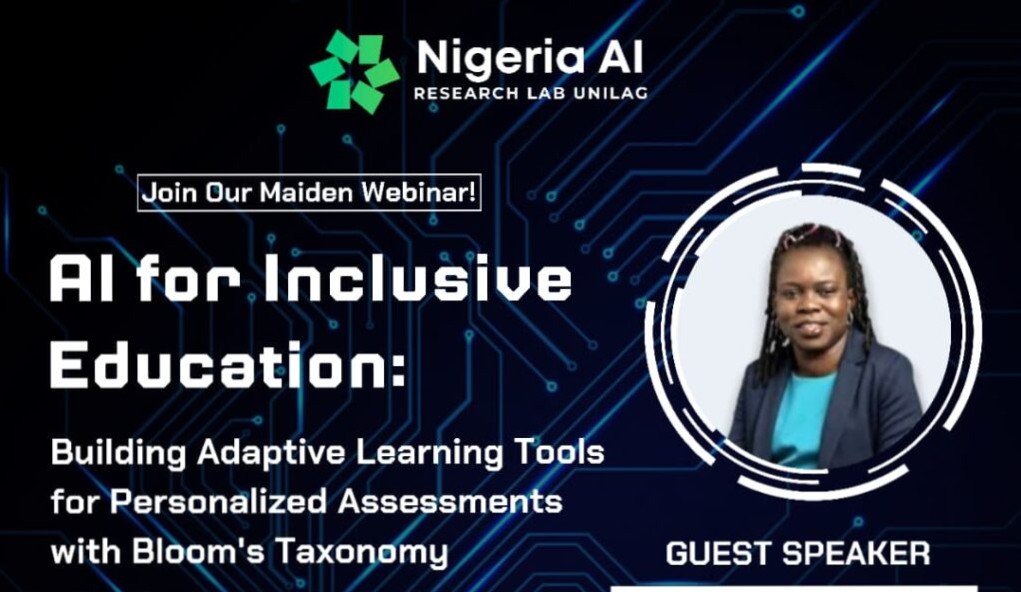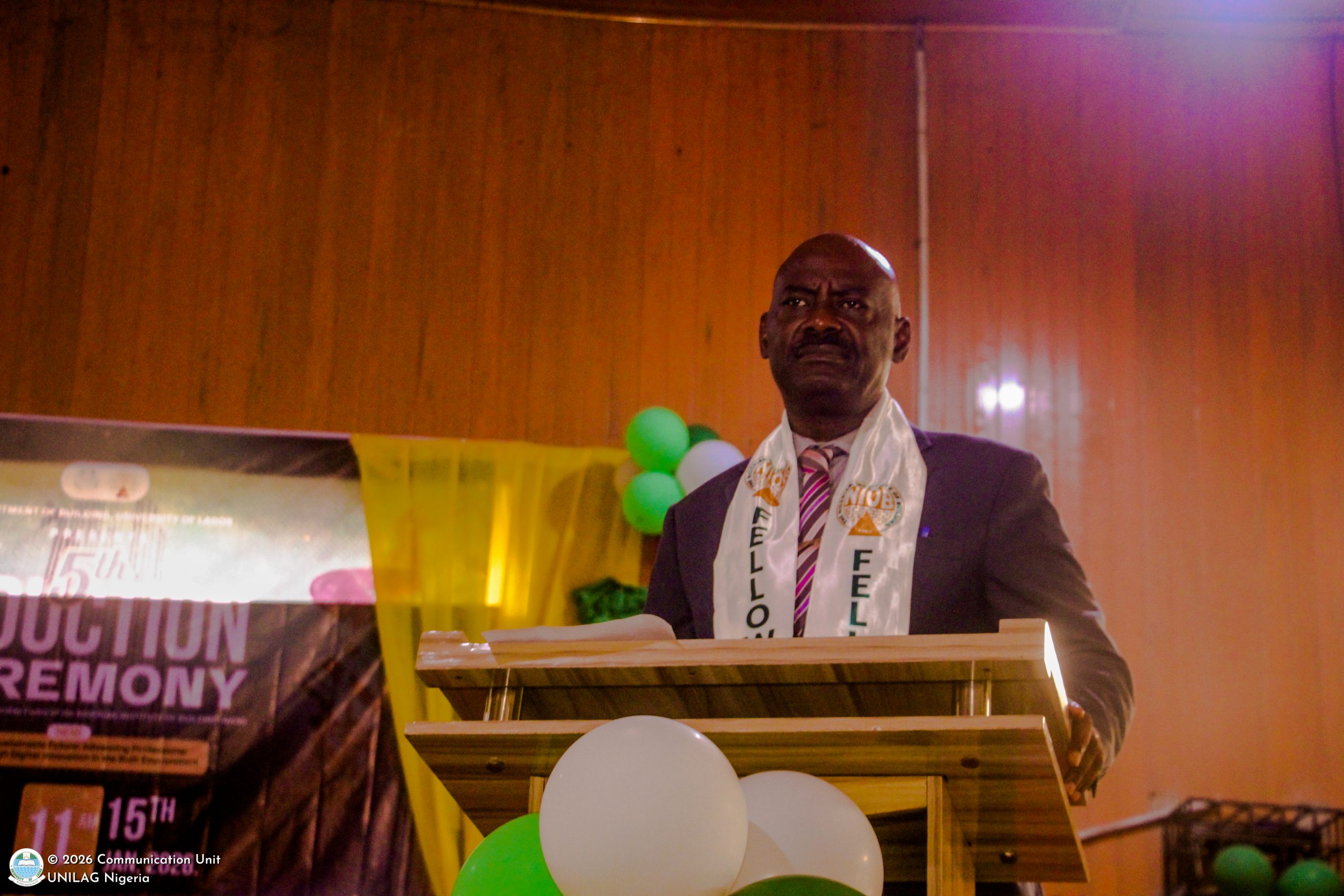The Nigeria Artificial Intelligence Research Laboratory (NAIL) at the University of Lagos (UNILAG) recently hosted its inaugural webinar focused on the application of Artificial Intelligence (AI) in advancing inclusive and personalized education.
The webinar, with the theme: AI for Inclusive Education: Building Adaptive Learning Tools for Personalized Assessments with Bloom’s Taxonomy, brought together scholars and practitioners to examine the potential of AI in transforming teaching and learning within the Nigerian context and beyond.

Dr. Oladipupo Sennaike, the Principal Investigator at NAIL and Lecturer at the Department of Computer Science, Faculty of Computing and Informatics, kicked off the webinar with an introduction of the lab’s current projects, highlighting its three focal areas: foundational language models for translation (initially Yoruba and Hausa); personalized learning systems tailored to the Nigerian context and ethical considerations in applying AI to education. He also emphasized the commitment of the Lab to capacity building with PhD, Master’s, postdoctoral researchers, and fellows collaborating globally.
The keynote speaker and AI & education expert from the Wentworth Institute of Technology in the United States, Dr. Yetunde Folajimi explained the capacity of AI to facilitate personalized learning. According to her, unlike conventional approaches where students progress through uniform curricula and standardized assessments, personalized learning emphasizes adaptability to individual learner needs. She noted that AI systems can identify each student’s strengths and weaknesses, provide differentiated assessments, and ensure that all learners – regardless of their socio-economic or educational background – have equitable opportunities to succeed.

Dr. Folajimi further explained the role of pedagogical frameworks in shaping AI applications, and highlighted Bloom’s Taxonomy, a widely recognized model for categorizing cognitive skills, as a foundation for designing AI tools capable of generating questions and activities that align with a learner’s current level of understanding. Similarly, she showcased adaptive learning systems as innovations that allow instructional content to evolve in response to student performance, offering remedial support where needed and presenting advanced challenges when learners demonstrate readiness.
The AI expert added that personalized assessments have been identified as a major breakthrough, enabling the development of evaluation methods tailored to the individual rather than relying on traditional one-size-fits-all examinations. Drawing upon her research, she demonstrated how AI, when applied ethically and transparently, can strengthen learning outcomes and expand inclusivity.
Dr. Folajimi also addressed key challenges confronting the adoption of AI in education, such as scarcity of resources and locally relevant data in Africa, resistance among teachers who express concern about integrating AI into their practices, and the logistical difficulties of applying personalized learning strategies in overcrowded classrooms.
Practical demonstrations enriched the session, offering participants a view of AI tools already in development. These included systems capable of classifying questions according to Bloom’s Taxonomy levels and the use of large language models to expand and diversify question banks. Such examples illustrated how AI innovations are gradually bridging the gap between theoretical potential and classroom application.
Authors: David Oputah & Maleeq D. Quadri
Editors: Ndidi J. Odinikaeze & Joke Alaga-Ibraheem






